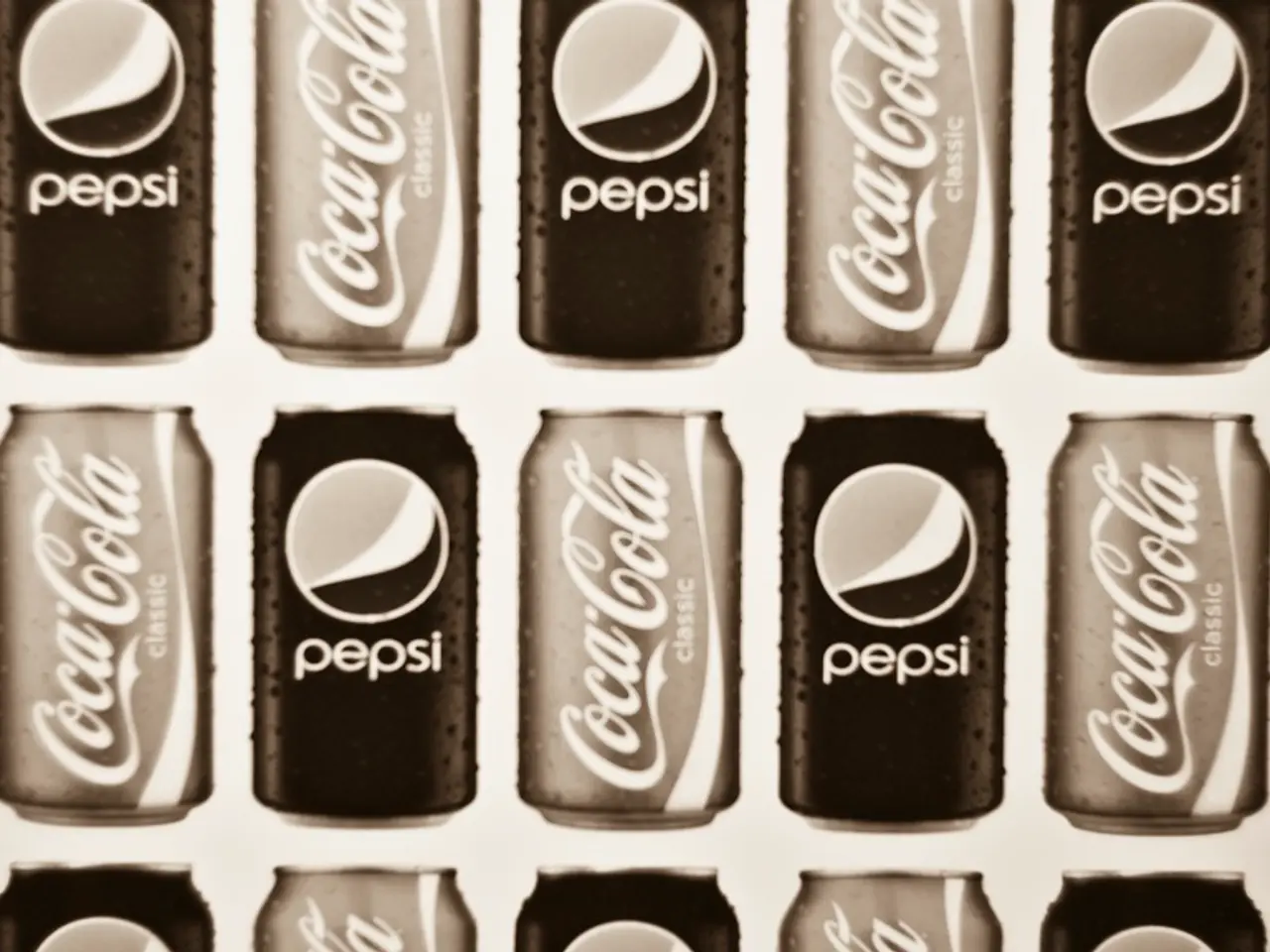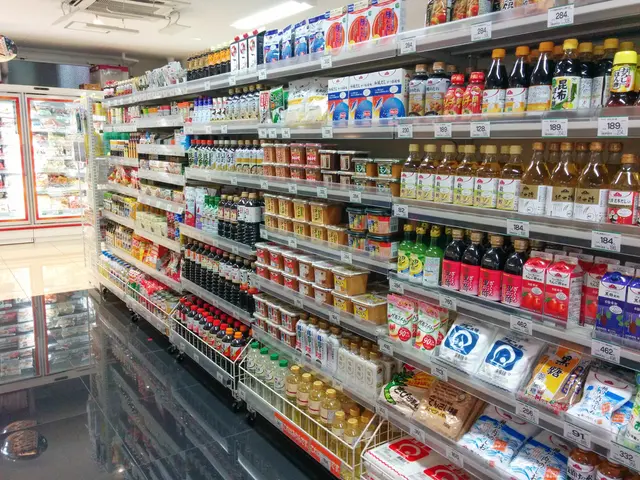Disruptions instigated by the interest group
In the ongoing negotiations for a global plastic agreement, the petrochemical industry is exerting significant influence, aiming to shape the discussions in a way that benefits their economic interests.
The industry's primary concern is the proposed limits on plastic production and waste management. Fossil fuel companies and petrochemical giants, such as ExxonMobil, Shell, INEOS, and Dow, are lobbying heavily against global treaty measures that would impose legal limits on plastic production [1][5].
The petrochemical sector's influence is evident in the UN negotiations, where a large presence of lobbyists often outnumber official delegates and scientists. This corporate capture enables them to influence treaty language and outcomes in their favour, including promoting approaches that favour recycling and waste management rather than upstream production cuts [1][3].
Countries rich in fossil fuels, notably Saudi Arabia (home to giant Aramco and Sabic), the US, Gulf states, Russia, and others, side with industry interests to limit the treaty's scope to downstream waste management, resisting comprehensive measures on production limits [1][5].
This resistance from the industry and petrostates contributes to a deadlock in negotiations, delaying or watering down ambitious treaty provisions that would set phased reduction targets for plastic production globally [2][5]. As a result, some countries advocate for a treaty focusing only on easing plastic pollution through improved recycling and waste management rather than addressing the root cause—excessive plastic production. This approach is criticized by many smaller and developing nations, who argue that meaningful change requires limits on virgin plastic production and shifts towards reuse and product durability [2][4][5].
The industry's influence risks allowing continued expansion of plastic manufacturing capacity and fossil fuel extraction, directly contradicting the treaty’s goals of minimizing plastic waste and related emissions [1][4].
Despite this, organisations like Plastics Europe, a representative of the European petrochemical industry, aim to transition the industry to a climate-neutral circular economy by 2040. However, the industry's strategic lobbying efforts and alliance with petrostates significantly shape global plastics treaty talks, often undermining or stalling efforts to impose production caps and lifecycle approaches that would more effectively reduce plastic pollution and climate impacts.
In 2023, a staggering 436 million metric tons of plastic were produced worldwide. By 2040, if the hoped-for significant increase in plastic production occurs, 45 percent of refined oil could be used for the production of plastic [6][7]. This raises concerns about the industry's commitment to a sustainable future, as 90% of plastic is currently produced from oil [8][9].
Greenpeace has calculated that these fossil fuel and petrochemical companies have produced enough plastic since the start of the negotiating process in November 2022 to fill 6.3 million garbage trucks [10]. In the same period, the seven companies have also expanded their capacities for producing new plastics by 1.4 million tons [11].
The trade volume of plastic exceeded $1.1 trillion USD, and Dow Chemical, a struggling US chemical giant, was the top sender with at least 21 lobbyists [12]. The largest British manufacturer, Ineos, is currently investing £3.5 billion in Project One in Antwerp, where the largest plastic plant in Europe is to be built [13].
However, the issue of plastic waste is a pressing one. 75% of all plastics ever produced have become waste, with most of it ending up in the world's oceans and ecosystems [14]. This underscores the need for a comprehensive approach to plastic management that addresses both production and waste management.
As the negotiations continue, it remains to be seen whether the petrochemical industry's influence will prevail or whether the global community will successfully impose measures to reduce plastic production and manage waste more sustainably.
References:
- https://www.greenpeace.org/international/press-releases/petrochemical-industry-uses-lobbying-to-block-plastic-pollution-treaty/
- https://www.theguardian.com/environment/2021/dec/03/plastic-pollution-treaty-negotiations-stalled-by-industry-lobbying-says-greenpeace
- https://www.theguardian.com/environment/2021/nov/29/plastic-pollution-treaty-talks-stalled-by-lobbying-from-fossil-fuel-companies
- https://www.theguardian.com/environment/2021/nov/26/plastic-pollution-treaty-negotiations-stalled-by-lobbying-from-fossil-fuel-companies
- https://www.theguardian.com/environment/2021/nov/23/plastic-pollution-treaty-negotiations-stalled-by-lobbying-from-fossil-fuel-companies
- https://www.unep.org/news-and-stories/story/un-environment-programme-calls-binding-measures-limit-plastic-production-and-suggests-75
- https://www.unep.org/resources/un-environment-programme-calls-binding-measures-limit-plastic-production-and-suggests-75
- https://www.un.org/sustainabledevelopment/blog/2021/11/plastic-pollution-treaty-negotiations-stalled-by-lobbying-from-fossil-fuel-companies
- https://www.businessinsider.com/plastic-industry-lobbying-against-un-plastic-pollution-treaty-2021-11
- https://www.greenpeace.org/international/press-releases/petrochemical-industry-uses-lobbying-to-block-plastic-pollution-treaty/
- https://www.greenpeace.org/international/press-releases/petrochemical-industry-uses-lobbying-to-block-plastic-pollution-treaty/
- https://www.greenpeace.org/international/press-releases/petrochemical-industry-uses-lobbying-to-block-plastic-pollution-treaty/
- https://www.ineos.com/media-centre/press-releases/2022/08/ineos-announces-3-5-billion-investment-in-plastics-facility-in-belgium
- https://www.theguardian.com/environment/2020/jun/11/99-percent-of-all-plastic-ever-made-is-still-in-the-environment-report-finds
- The petrochemical industry, such as ExxonMobil, Shell, INEOS, and Dow, is actively lobbying against global treaty measures that would impose legal limits on plastic production, aiming to preserve their financial interests in the environmental-science sector.
- The industry's strategic lobbying efforts and alliance with petrostates, including countries like Saudi Arabia, the US, and Russia, significantly shape global plastics treaty talks, often stalling efforts to impose production caps and lifecycle approaches that would effectively reduce plastic pollution and climate impacts.
- Despite the pressing issue of plastic waste and the need for a comprehensive approach to plastic management that encompasses both production and waste management, the finance and business sector, particularly organizations like Plastics Europe, are focused on Transitioning the industry to a climate-neutral circular economy by 2040, which could potentially continue the expansion of plastic manufacturing capacity and fossil fuel extraction.





